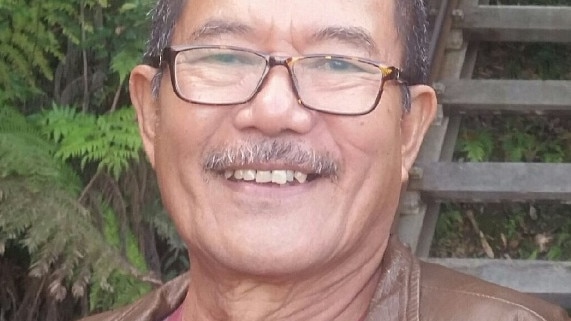Ali Djawas, 70, died at Royal Darwin Hospital after ‘unnecessary’ and risky bowel surgery, NT Coroner finds
A ROYAL Darwin Hospital patient died after a major and unnecessary surgical procedure, the risks of which were never fully explained, the Territory Coroner has found.

Northern Territory
Don't miss out on the headlines from Northern Territory. Followed categories will be added to My News.
A ROYAL Darwin Hospital patient died after a major and unnecessary surgical procedure, the risks of which were never fully explained, the Territory Coroner has found.
Ali Achmadun Djawas, 70, died 19 days after surgeons removed a chunk of his bowel, a procedure that was the riskiest of three possible options for treating the father-of-eight.
Coroner Greg Cavanagh on Tuesday found the surgery was unnecessary, that the risk of death was not explained and that neither Mr Djawas nor his family were told what warning signs to look out for after he was discharged to recover at home.
BUDGET REPAIR STORIES
BUDGET Fix: The NT Government’s plan
DUMMIES guide to the NT budget fix
MORE than 50 of the highest public servants face the sack
POLLIES, chief executives cop pay freeze among budget crisis
SHORTEN government would ‘bail out’ cash-strapped NT
NT GOVERNMENT to set a ‘debt limit’
“There was no appreciation as to the very real possibility of the development of a leak and sepsis,” Mr Cavanagh said.
“They were not told of the extent of the operation, they were not told that half his colon had been removed.
“They were not told what to look for and they were not told the seriousness of the situation if he developed symptoms suggestive of a leak.”
Mr Cavanagh said that if Mr Djawas returned to hospital as soon as there were signs something was amiss, “he may well have survived the leak”.
“The lack of proper communication on discharge may well have led directly to this death,” Mr Cavanagh said.
IN OTHER NEWS
Mr Cavanagh was also scathing of the hospital’s failure to immediately review Mr Djawas’s case.
“If the death of a person such as Mr Djawas after elective surgery dies not prompt a review, one wonders what would.”
Mr Cavanagh made a series of formal recommendations for the Top End Health service to improve communication with patients.


